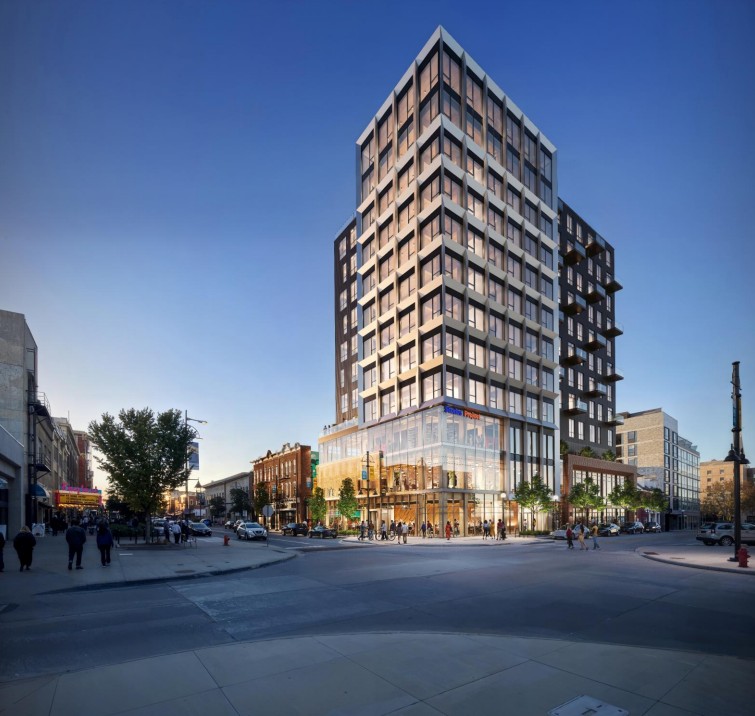
Development proposals for a prime downtown Iowa City property have been narrowed to two after two of the potential developers merged their plans into a single project. During its work session Tuesday, the Iowa City council heard proposals for 21 S. Linn St. from Grand Rail Development, Salida Partners and Iceberg Development, the latter two […]
Already a subscriber? Log in
Want to Read More?
Get immediate, unlimited access to all subscriber content and much more.
Learn more in our subscriber FAQ.
- Unparalleled business coverage of the Iowa City / Cedar Rapids corridor.
- Immediate access to subscriber-only content on our website.
- 26 issues per year delivered digitally, in print or both.
- Support locally owned and operated journalism.
Do you want to read and share this article without a paywall?
Click here to purchase a paywall bypass linkDevelopment proposals for a prime downtown Iowa City property have been narrowed to two after two of the potential developers merged their plans into a single project.
During its work session Tuesday, the Iowa City council heard proposals for 21 S. Linn St. from Grand Rail Development, Salida Partners and Iceberg Development, the latter two recently combining their plans.
City staff had not reviewed the newly merged proposal prior to the work session, prompting City Manager Geoff Fruin to urge the council to delay its decision until April 1 or April 15, which would give staff time to analyze the plan and the public an opportunity to review it and offer input.
“After the conclusion of the presentations tonight, what we would do going forward is staff would ask for the necessary kind of background information on the merge proposal so that we can run that analysis,” he said.
Steve Long of Salida Partners and Jim Berg of Iceberg Development, currently partners in the redevelopment of the former ACT campus spanning approximately 400 acres, decided to team up again for 21 S. Linn St.
The two felt that with Salida Partners’ focus on the community as a whole and Iceberg Development’s focus on affordable housing, merging the two plans would best benefit the city.
“This is truly for the community, and we've had a good time the past week or so talking this through,” Mr. Long said.
Key aspects of the proposal include:
- The Englert Theatre as an anchor tenant
- A two-story community gathering space with a performance venue with a mezzanine, greenroom, and back-of-house offices, which can open into an adjacent courtyard
- A shared “third space” managed by The Englert for an artists’ co-working and resource center
- A transparent dining and bar area on the corner of Washington and Linn Streets
- A 4,000-square-foot footprint on the second floor for Stories Project
- Four ground-level micro retail units, each about 500 square feet
- Alley revitalization
- 91 housing units, with a mix of affordable, market-rate and senior living
- Dedicated fourth floor for ACT offices
Grand Rail Development
Grand Rail Development expressed interest in honoring Iowa City’s original city hall, which once stood on the site, by incorporating brick materials into the design. The developer also received inspiration from the Downtown and Riverfront Crossings Master Plan, incorporating a step-back so that the corner building would complement adjacent historic structures and maintain the character of downtown Iowa City. Key aspects of the proposal, which Grand Rail said could be adjusted, included- An Englert Theatre event venue and a cafe with an outdoor patio, or a cultural museum space with micro retail on the lower level
- ACT offices on level two
- The Stories Project and possibly office space for the city of Iowa City, with access to an outdoor terrace, on levels four through six
- Twenty residential units on upper levels. Each unit would be one to two bedrooms, have its own garden plot and a shared backyard roof. Four to eight of these units would be designated as affordable, developed in collaboration with The Housing Fellowship